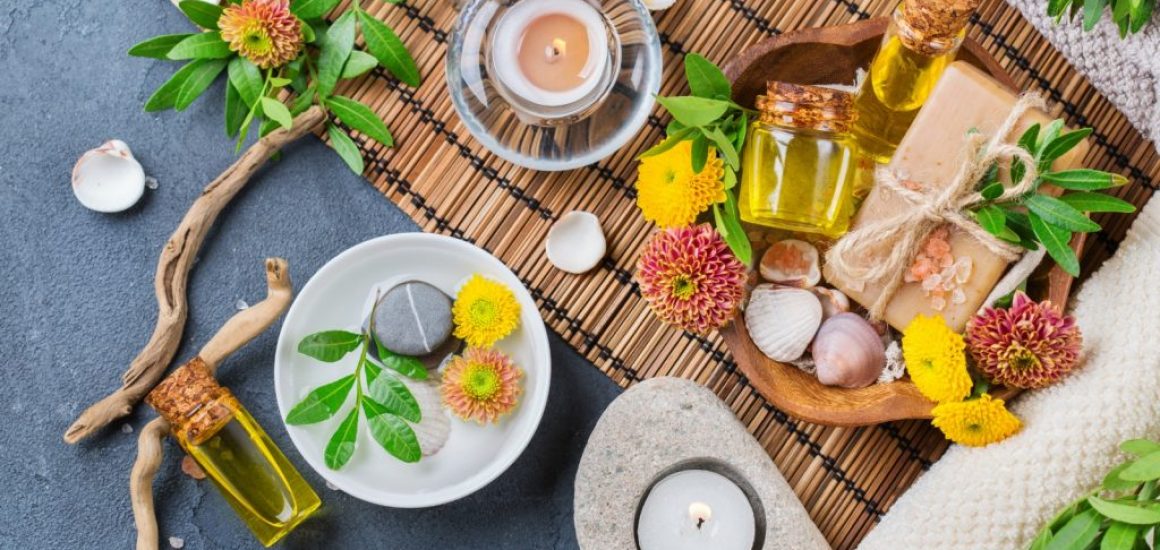Does aromatherapy actually work? (The truth about essential oils)
This is a question I see being asked quite a lot, so I wanted to provide some clarification around aromatherapy and the use of essential oils.
If you’ve ever found yourself asking this question, the first thing we need to clarify is what you mean by “work”.
After all, this could look different for everyone!
Essential oils have been shown in numerous studies to have a range of health benefits. However, it’s equally important to note here that essential oils are not a miracle treatment.
Health issues can be extremely complex and it’s always best to consult with a GP before seeking natural remedies.
Millions of people all over the world have been reporting life-changing benefits after using aromatherapy and essential oil treatments, but the extent to which aromatherapy works for YOU may vary.
Let’s firstly dive into what aromatherapy is actually used for.
What is aromatherapy for?
In a nutshell, aromatherapy is a holistic treatment that uses natural plant extracts and oils to boost health and well-being. It can sometimes be referred to as oil therapy because the essential oils have been shown to have a therapeutic effect on both the body and mind.
Some people use aromatherapy to simply relax at home while others use aromatherapy jewellery to help them feel energised and focused throughout the day.
Every individual has their own reasons for using aromatherapy treatment and it really comes down to a matter of person preference.
Aromatherapy and plant extracts have also reportedly been used for thousands of years. However, it has gained substantially more recognition in the fields of science and medicine over the recent years.
How does aromatherapy help?
The scientific research in this area is still fairly limited, but essential oils and aromatherapy have been shown to have a huge number of benefits and potential use cases including:
- Managing pain
- Improving digestion
- Treating headaches and migraines
- Soothing sore joints
- Boosting the immune system
- Reducing and relieving stress or anxiety
- Improving sleep quality
- Helping with concentration
My partner has found peppermint oil has helped with the symptoms of his ADHD.
How fast do essential oils work for aromatherapy?
The speed at which the essential oils begin producing an aroma will depend on the method of diffusion and the amount of oil used. In terms of the calming effects oils can have on a person, the speed and intensity of this will depend on the individual.
However, there are a number of essential oils, like peppermint for example, that can be applied topically ie directly to the skin, which can produce a more instant effect. Peppermint oil has been shown to reduce nausea and headaches as mentioned in this article by Healthline.
How to get the most out of my essential oils?
In order to get the most out of your essential oils, you’ll firstly want to ensure an effective method of diffusion.
There are a number of different types of oil diffusers that can help with this.
- Reed diffusers
- Ultrasonic diffusers
- Oil burners
- Nebulizing diffusers
Next, you’ll want to make sure that you’re using 100% pure essential oil and not fragrance (synthetic) oil. The main difference between fragrance oils and essential oils is that fragrance oils are manufactured in a lab and essential oils are made of natural materials. This difference comes from the ingredients that each oil is composed of, and where those ingredients are sourced from.
This way, you’ll get all the additional benefits natural essential oil has to offer, and not just the fragrance.
A Note on Safety
Because essential oils are highly concentrated, they can be irritating to the skin in their pure, undiluted form. Therefore, it’s important to avoid coming in direct contact with the oils, and especially to avoid rubbing your eyes if some oil should get on your hands while you’re applying it to your shower. Rest assured that the act of diffusing with steam dilutes the oil enough to make it safe to touch and inhale. When using essential oils topically, it’s important to mix them with a carrier oil, such as olive oil or coconut oil, to prevent irritation to the skin.
- How To Mix Essential Oils With Water For Diffusers - 11/07/2021
- What Do Singing Bowls Do? - 18/06/2021
- What Materials Absorb Essential Oils? - 12/06/2021

